Diversity: Reclaiming a Buzzword
Devra Torres | Apr 19, 2012 | 10 cmts
God is clearly fond of diversity.
Last week, I posted about the striking variety in personality, temperament, talents and style among Catholic priests. Several readers noted the same individuality among the saints.
But is it just the Church? Reader (and friend) Jessica Essolen pointed to a Baptist minister and a Jewish philosopher who display plenty of flourishing individuality. And what about those Catholic "reductionists" we all know who misguidedly promote particular devotions or styles or images as the only authentic piety? (Steven Greydanus has some worthwhile thoughts on the subject.)
So, it's true: on the one hand, some Catholics do act as if they had very little use for diversity. On the other, the Catholic Church does foster the unrepeatable individuality of every single human person.
But it's not just Catholicism.
It's God Himself.
"Hold on!" you may be hollering. "I know all about embracing diversity. I've been hearing about very little else for the past 40 years--but I didn't expect that kind of blather from a respectable blog like this! Isn't 'diversity' just a code word for relativism? Isn't it just a way of saying that the Bee Gees
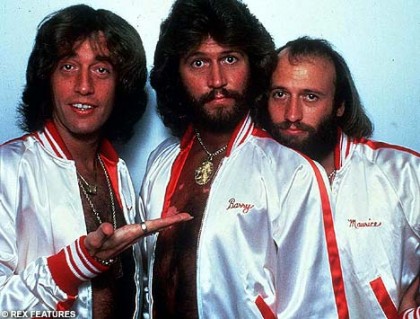
are just as good as Haydn
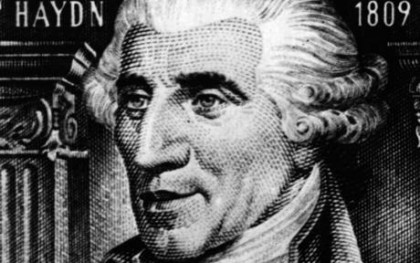
(aesthetic relativism) or that scientology is just as good as Christianity (theological relativism) or that a 'friend with benefits' is just as good as a lawfully wedded husband (moral relativism)?"
Ah. I see what you mean. You've understood "diversity" exactly the way it's usually intended.

But I submit that it's a term worth taking back from the roving reductionist word-hijacking brigade that's been running around unrestrained for so long now. (While we're at it, let's reclaim "choice," too. Then we'd be able to make perfectly reasonable claims like "God, the inventor of free will, is pro-choice" without fear of misrepresentation.)
Yes, we should embrace legitimate diversity.
And no, we shouldn't be surprised to see lots of it in a world that emerged from the hand of an infinite and perfect God. When we call Him "perfect," we don't just mean He doesn't lie, cheat or steal. We mean He's complete, lacking in nothing. Certainly not in imagination.
He didn't have to make us male and female, or melancholy, sanguine, choleric and phlegmatic. But He did. He didn't have to invent asperatus clouds

or the crab nebula
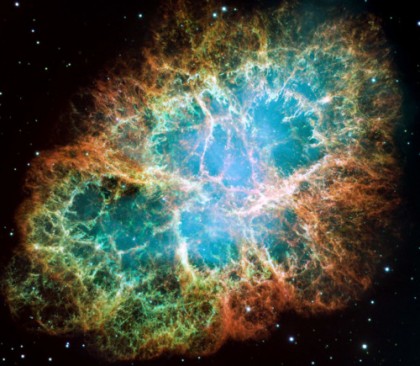
or platypuses.

He didn't even have to create the universe in full color, or give us eyes to perceive it that way. Nor was He obliged to create billions of human persons, each with an unrepeatable subjectivity and the capacity for free actions with real-world consequences.
Why would He have bothered if what He truly desired was cultish, freedom-suppressing uniformity? If we believers have given the impression that that's what our Faith is about, then no wonder there's such a glaring need for a new evangelization. It's urgent that we make it clear that liberty-squashing piety is just as unappealing to us as it is to the most self-respecting, autonomy-treasuring atheist or agnostic. As Fulton Sheen put it,
"There are not one hundred people in the United States who hate the Catholic Church, but there are millions who hate what they wrongly perceive the Catholic Church to be."
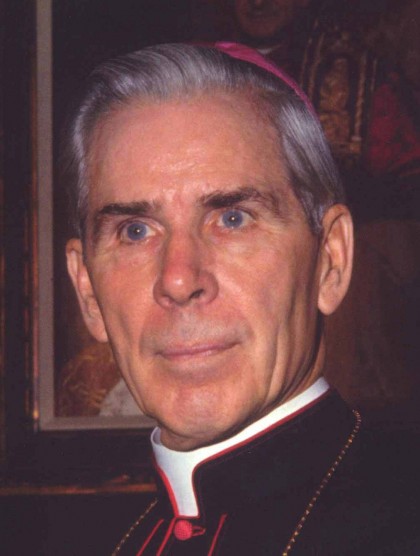
We embrace real diversity because it manifests the countless facets of the unbounded personal Being who we worship. This is an altogether different thing than heedlessly dabbling in different flavors of aesthetics or ethics or religion because we don't believe any of them are worth arguing about (never mind killing or dying for, pace John Lennon).
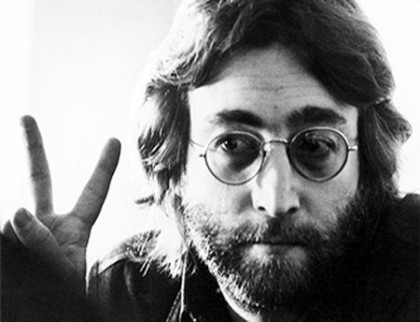
At the International Academy of Philosophy, our motto was "Diligere veritatem omnem et in omnibus": Love all truth and love it in everything. We delighted to unearth grains of truth in even the unlikeliest places. (Some people were scandalized that we found some of those grains in Kant. Others, before them, were scandalized that St. Thomas found them in Aristotle.)
So it's one thing to seek out objective truth in all kinds of places. It's quite another to indulge in random, pointless appreciation of this n' that, aspiring to nothing higher than agreeing to disagree.
How, then, do you distinguish between the riches of a diversity worth celebrating and an incoherent relativism? (Then there's the no less urgent question: How do you do that in a little blogpost, without losing any heroic readers who may have persevered this far?)
St. Augustine had some excellent advice about this--at least, it's usually attributed to him. It goes like this:
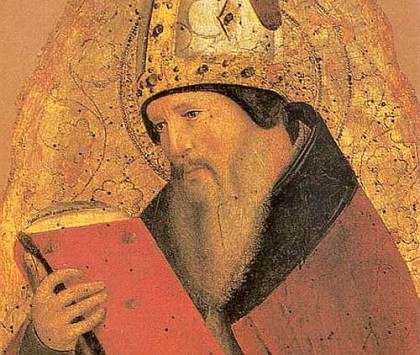
In essentials, unity; in non-essentials, liberty; in all things, charity.
I don't presume to improve on that, but here are a few clarifications worth noting:
- Doctrine is doctrine. There's no point in embracing various opinions about whether we should obey the commandments of an all-wise God. (But there is, as Cardinal Newman explains better than I can, such a thing as "development of doctrine," in which an unchangeable teaching is explained more lucidly, with different emphases, or applied to novel situations.)
- Practice is practice, too. What I mean is, if a lawful authority declares that, say, you can't eat meat on Fridays, or that Latin-rite priests can't marry, then, yes, it's "just" a matter of praxis, not doctrine. It could change. But if you disregard such rules, you're not embracing legitimate diversity; you're just being disobedient.
- In such matters as politics and science and culture, and even of liturgical preference and Biblical interpretation, Catholics are allowed enormous lattitude.
In fact, as a convert, it still strikes me as an astonishing amount of lattitude. Within certain broad limits, a Catholic is perfectly free to believe in creationism

or (theistic) evolution.
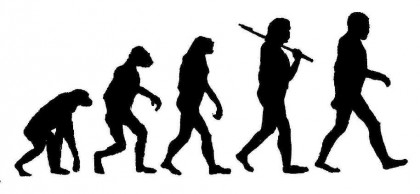
An American Catholic is not required to belong to any particular political party (though not everyone talks that way in an election year). There are Eastern and Western rites, traditions, and liturgies. There are myriad childrearing styles, careers, associations, and spiritualities that a Catholic layperson can practice and participate in with a perfectly good conscience.
And as the Jewish mother of a small tribe of free, unrepeatable subjects
--well, I'm sure I'm anthropomorphizing here, but I'm very impressed, and almost scandalized, at how much our Father respects His children's ability to exercise our own judgment. I have what are known as "adult children" of my own, and I find it exceedingly difficult to let them run around using their own judgment. I can't shake the sense that it must be hard for God, too, to take the "risk" of allowing all that freedom and all that diversity--especially since He knows that it will often end badly (rather than just worrying that it might, like earthly parents do).
I could almost believe that it must be tempting for Him to put His foot down and declare,
OK, this experiement is over! Look what you did with the freedom I gave you! From now on, you'll all have the same opinions, the same tastes, and the same personalities! For your own good! Because I said so!
But then, that wouldn't be very personalist of Him.

Comments (10)
Sapperdepitjes
Apr 20, 2012 10:10am
Loved this post!
Diversity is a necessary consequence of personal freedom, which (together with intelligence) is a necessary condition for personal love, synonym of God.
Greetings from my yearly retreat, preached in Zaragoza, Spain, by the author of this book, in urgent need of publication in English... This morning, the preacher considered the utter silence of the father in the parable of the prodigal son, when the younger son asks for his part of the heritage and then leaves: no questions asked, no advice given, no fears expressed, no broken heart complaints...
Devra Torres
Apr 20, 2012 12:16pm
I'm a big fan of Amor y Autoestima (though it took me long enough to read!) Very relevant to personalism, too, and very good at taking apart misunderstandings about self-esteem and guilt, which I think have gone a long way to causing so many misunderstandings about God and what He wants from us.
I have thought about the father in the parable many times, trying to figure out how to "translate" it into how to bring up children. Expressing fears, complaints, and worries sure does seem to be a singularly ineffective way of helping kids choose the good for themselves, and helping to see for themselves the consequences of their own free actions. But it's a puzzle how to put this wisdom into practice with kids of different ages. The aim is for them to make their own the choice of the good, the true and the beautiful. It can so easily backfire if they feel pressured or guilt-tripped. But when they're young they do need guidance. Very tricky!
Hey, maybe I could translate it!
Sapperdepitjes
Apr 20, 2012 12:49pm
Well, perhaps you could! Although we'd then also need to find a good editor...
But first, let me recommend you his next book. It's about the need for us to pass from capturing God's mercy on us to us starting to have mercy on Him: realizing his infinite suffering as a loving Father not being corresponded...!
I know Fr. Michel since thirty years, from before his ordination. We're close friends. He's sure interested in having his books translated and published abroad.
And he's also an occasional songwriter. Check this out and be surprised!
Devra Torres
Apr 20, 2012 1:54pm
A man of many talents! Maybe the next word we reclaim should be "self-esteem." And if I had known about all this before my first post, I probably would have included him among the unexpectedly diverse priests. I wonder how many men would consider the priesthood if they knew priests were "allowed" to write songs and fly planes and things!
TowerofBabble
Apr 20, 2012 2:05pm
This whole post is amazing! By the way, thank you for pointing out that by accepting [theistic] evolution, a Catholic is not going against the Church.
In the Evolution vs. Creationism debate, the study of the physical process of evolution seems to get mixed up with the theological debate of whether or not there was a Creator/God involved, leading to a pitiful pair of conclusions: either you're a religious creationist or an atheist evolutionist. Why couldn't God, who created the entire universe, have used his imagination in how he made us?
PS--You have some lovely children there.
Devra Torres
Apr 20, 2012 2:54pm
Thank you, Tower!
It's funny how the lovely children and the ape-to-man sequence are juxtaposed--I didn't notice that when I laid out the post.
The evolution-creation debate is so full of caricatures and straw men, on both sides. I love the way the Church says: Here are the guidelines. Go ahead, use the intellect God gave you, and see which ideas seem more convincing to you. I sometimes see evolutionists getting sloppy about logic because they don't feel obliged to take the other side seriously. Even if a proponent of intelligent design uses logic rather than proof texts from Scripture, people assume he's just doing it to hide his real objections.
Devra Torres
Apr 20, 2012 3:21pm
@Sapperdepitjes: The music reminds me of Simon & Garfunkel and Eric Genuis. Very nice!
Katie van Schaijik
Apr 21, 2012 3:02pm
Devra, this point of yours:
reminds me of a moment in one of our reading circles when someone present had a sudden realization of how much God leaves to us. He burst forth with a kind of lament, "I don't think it's really fair of God to let my eternal well being depend on someone like me!" :)
It's like the Hebrews hankering after the flesh pots of Egypt, and the Galations preferring to be "under the law." The glory God intended in giving us freedom seems way too much for our poor powers. It IS too much for our powers. Thankfully, He offers us His.
Devra Torres
Apr 21, 2012 6:00pm
Or like C.S. Lewis says: we're like "an ignorant child who wants to go on making mud-pies in the slums because he cannot imagine what is meant by the offer of a vacation by the seashore."
Jules van Schaijik
May 27, 2012 9:19pm
Hi Sapperdepitjes,
Did you notice Devra's discussion of Amor y Autoestima in her latest post? I remembered it coming up in this thread, and thought I would let you know.